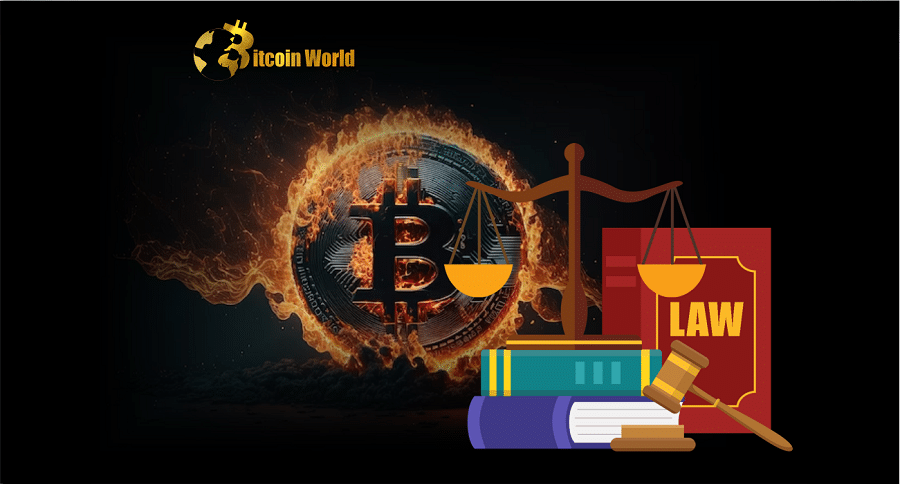The U.S. keeps regulating crypto assets. How will crypto fare in the U.S. amid lawsuits, agency definitions of digital assets, and Elizabeth Warren’s anti-crypto campaign?
Bitcoin, Ethereum, and their networks are making waves. Their disruptive innovation potential attracts investors and businesses.
How and who should regulate assets is still being debated as a new asset class with many novel characteristics. Regulators are still defining Digital Assets. Are they securities or commodities? Regulators balance allowing innovation and financial opportunity while protecting investors from fraud. Governments, builders, and consumers are waiting for regulators to define digital assets.
In 2023, the world’s largest economy and financial hegemon, the US, has taken legal action against several cryptocurrency companies and their executives under a new crypto regulation framework. American financial regulators have been suing and regulating crypto bad actors one by one, unlike China, which banned crypto.
In 2017, the SEC declared that some ICOs should be regulated as securities. This led the agency to pursue several projects in 2017 and 2018. Crypto regulation increased after the 2017 ICO boom. 2022 enforcement topped this. Digital asset regulation changed in 2022. The Biden administration released the first comprehensive US cryptocurrency regulation framework in September 2022. In March, the President’s Office issued an Executive Order for “Responsible Development of Digital Assets.”
The framework gave the SEC and CFTC much more authority (CFTC). The framework encourages the SEC to “aggressively pursue investigations and enforcement actions against unlawful practices in the digital assets space.” It also requested that the CFPB and FTC “redouble their efforts to monitor consumer complaints and to enforce against unfair, deceptive, or abusive practices.”
US regulators are targeting bigger fish and increasing enforcement actions. The SEC took several actions in 2017, mostly against Centratech and Airfox, unknown ICOs. In 2023, the SEC has sued former executives of global exchange giant and token issuer FTX, major exchange operations Gemini and Kraken, major borrowing and lending firms Genesis Global and Nexo, and digital asset issuer Terraform labs (LUNA & UST).
However, the SEC has not charged Coinbase. The U.S. After an SEC investigation, the SEC sends a notice of intent to enforce. The CFTC recently charged Binance and its founder, Changpeng Zhao, for wilfully evading federal law and operating an illegal Digital Asset Derivatives Exchange. The CFTC claims Binance violated “applicable federal laws” by trading crypto derivatives in the US. The CFTC claims Binance relied on US personnel and vendors, including institutional customers, ignored registration and regulatory requirements, and hid behind a “ineffective compliance program”.
The lawsuit clearly classifies several digital assets as commodities rather than securities. Binance “operated a facility for the trading of futures, options, swaps, and leveraged retail commodity transactions involving digital assets that are commodities including Bitcoin (BTC), Ether (ETH), and Litecoin (LTC) for persons in the United States,” according to the lawsuit.
December 2022 saw the CFPB’s first crypto company civil investigation. It sued Nexo Financial over Earn.
The framework recognizes digital asset value and potential while mandating regulation. The framework recognizes crypto’s potential to innovate and improve the financial system, promoting financial inclusion, economic growth, and access to capital for individuals and small businesses.
The Council of Economic Advisers Chairman writes the annual Economic Report of the President. It covers economic growth and has extensive data appendices. Crypto assets are covered in the latest report. Cryptocurrencies, stablecoins, NFTs, and decentralized finance are covered (DeFi). Hedera Deputy General Counsel Gregory Schneider (Lawtoshi) told Brave New Coin that the report acknowledges crypto is “here to stay” despite its negative tone.
The report highlights crypto asset risks and challenges. These include consumer and investor protection, market stability, financial integrity, and national security. The report states that crypto assets are regulated minimally. Their rapid growth and adoption may threaten financial stability and the economy. The report also urges international cooperation and coordination to address crypto assets’ global nature and potential impact on the global financial system.
Schneider says the report assumes crypto is only used to replace fiat money, ignoring the many use cases that have gone live in the last month, including collectibles, loyalty rewards, decentralized identity, and art. He says the report undervalues how provable digital scarcity and intangible asset ownership can be game changers.
He also disputes the report’s use of crypto in money laundering. It disregards the DoJ’s largest asset seizure due to crypto’s traceability. Senator Elizabeth Warren tweeted that she is building an anti-crypto army. The Senate Banking Committee oversees the U.S. Over the past year, the SEC has supported several high-profile anti-crypto bills. Crypto advocates are fighting back, but Warren’s willingness to work with GOP lawmakers shows that progressives, conservatives, watchdog groups, and bankers are all working to derail crypto.
Crypto may dominate the 2020 U.S. election. In response, many crypto-supporting Americans will become single-issue voters. Can “Crypto America” handle the main stage?














